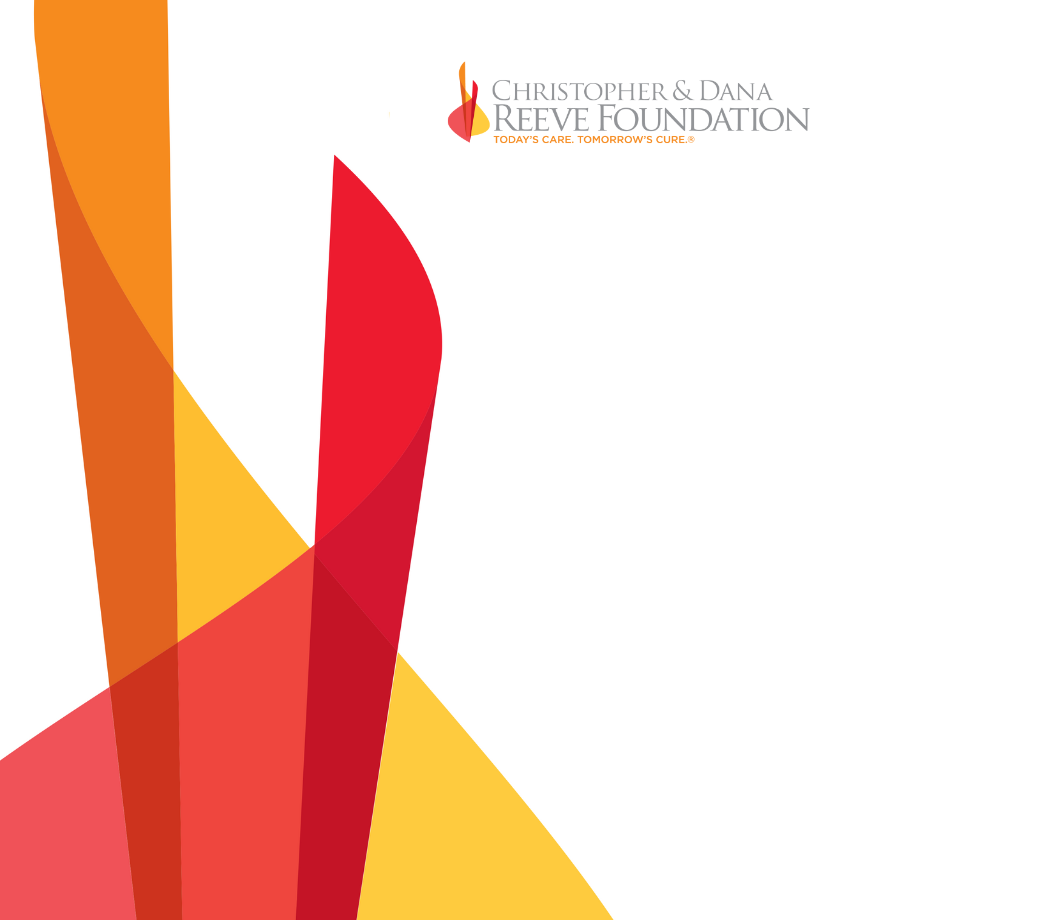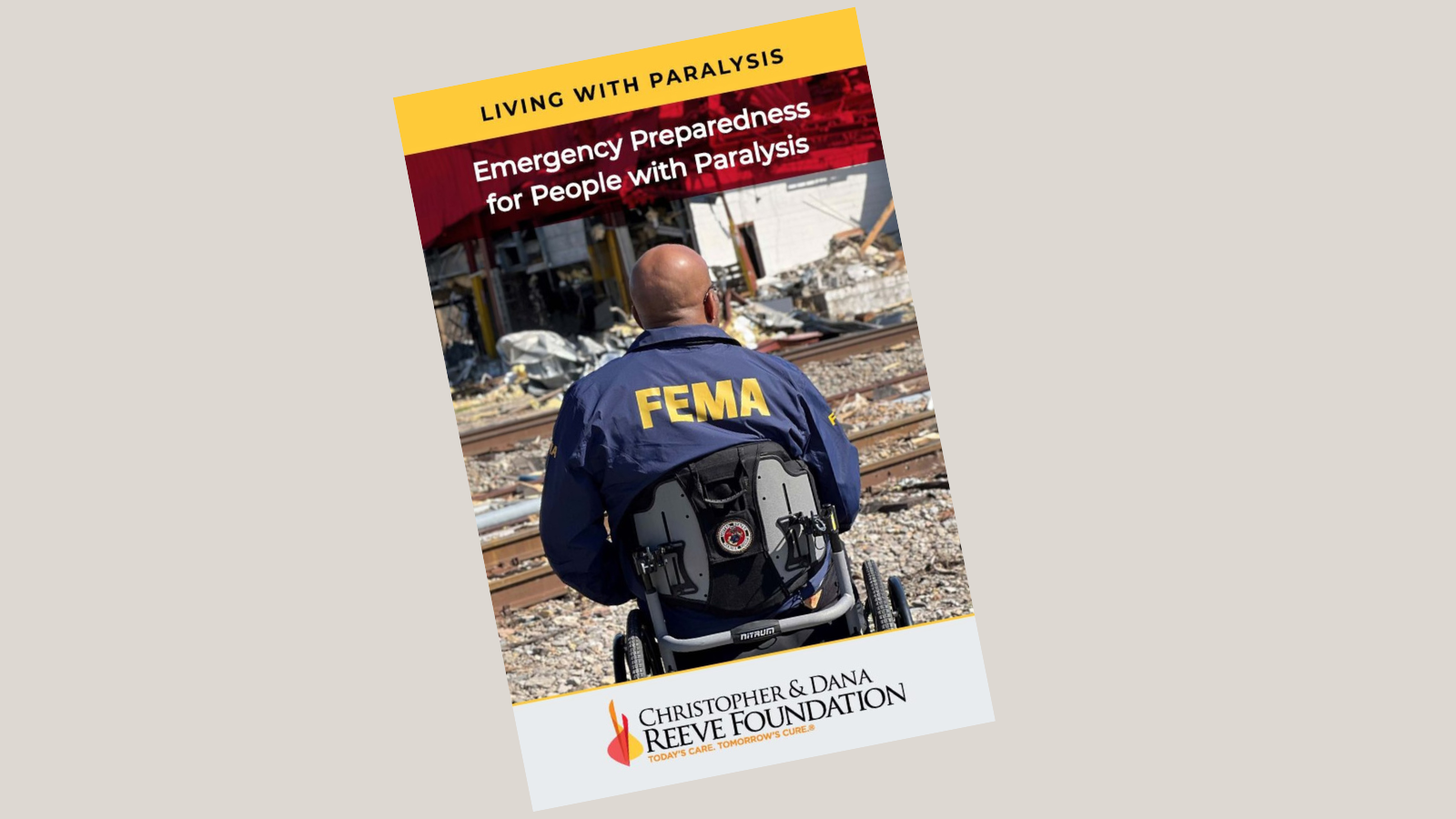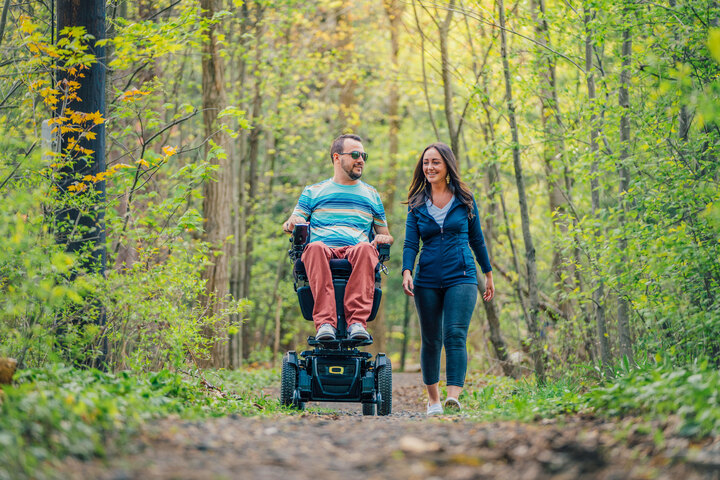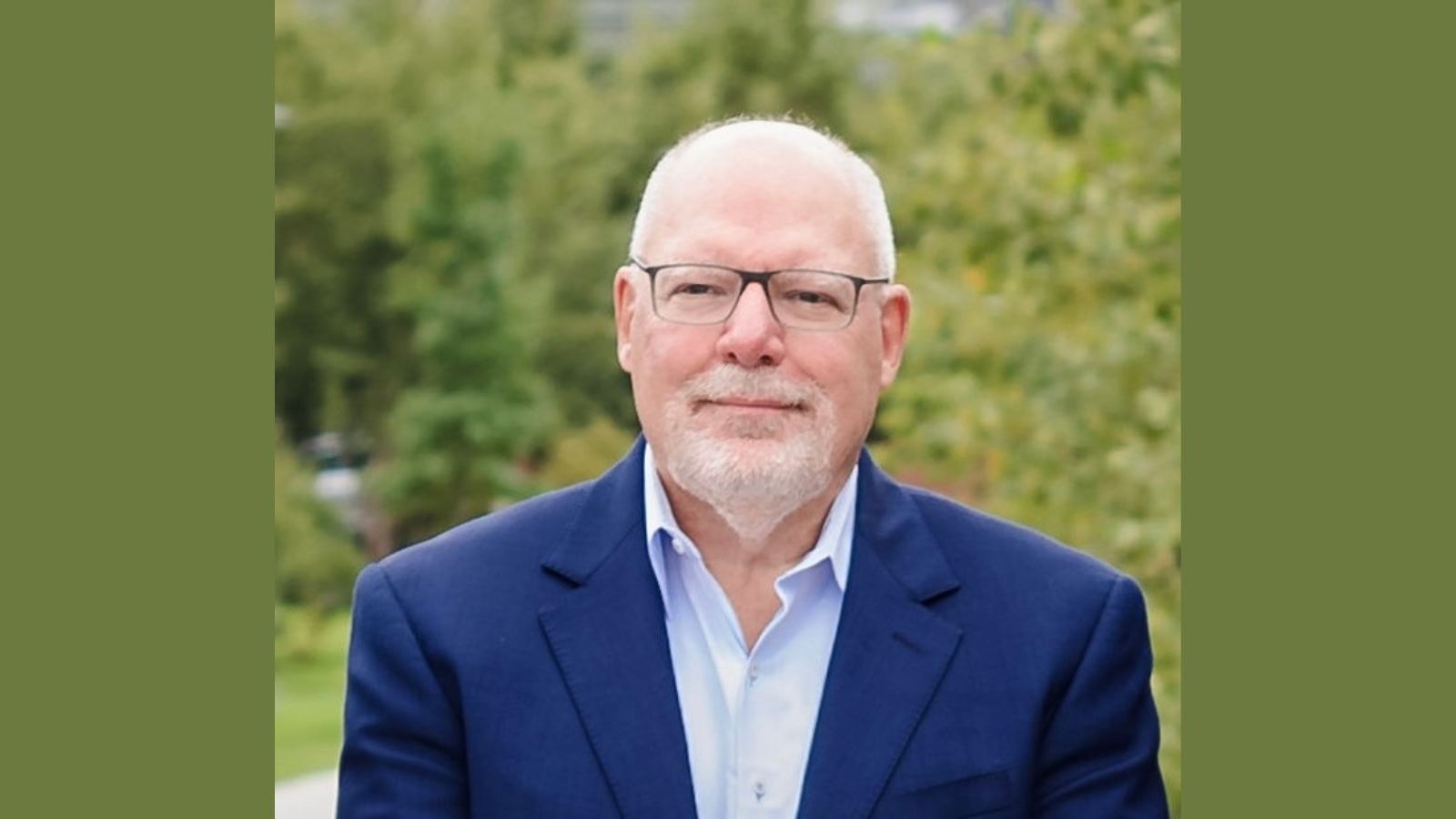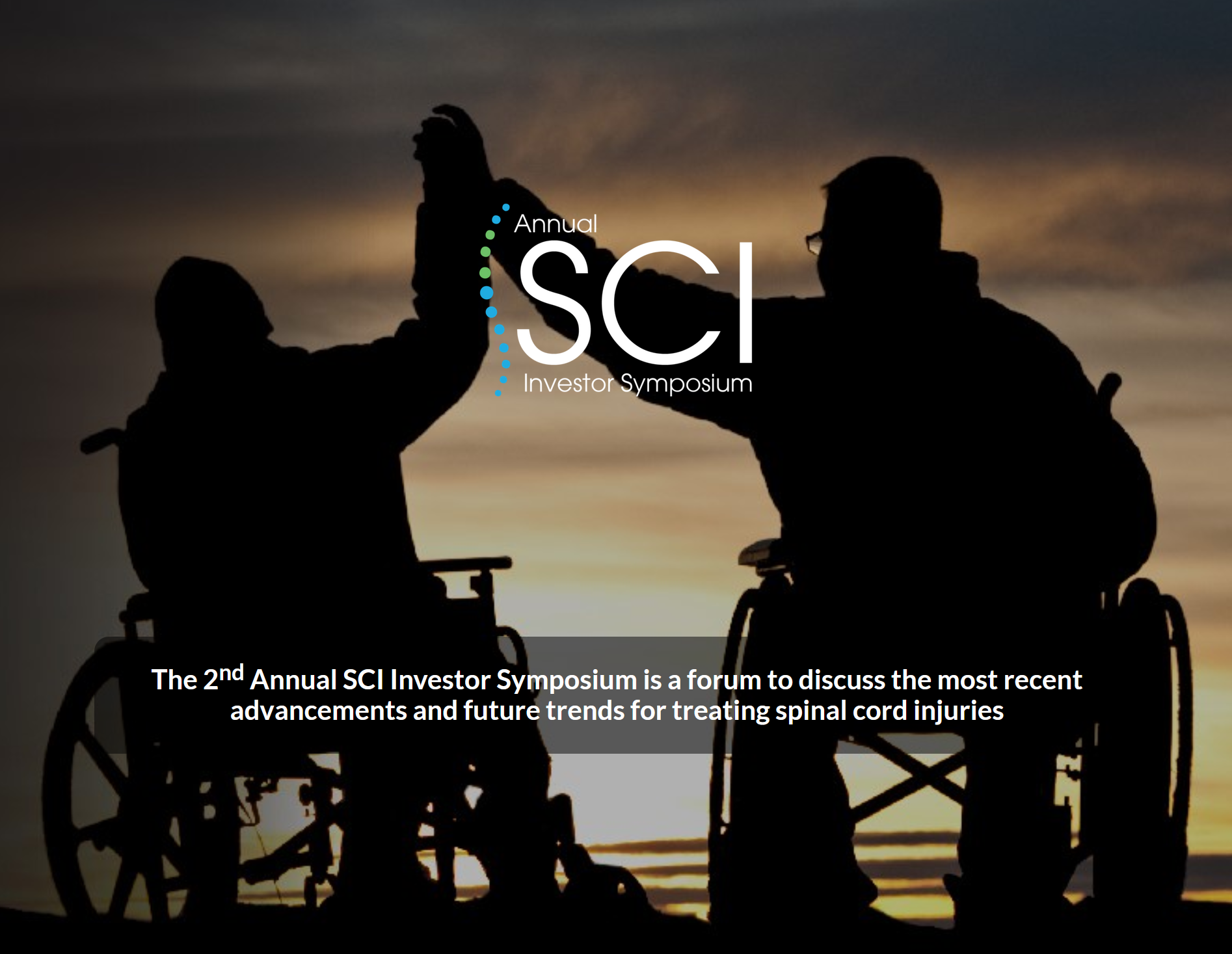New Survey from the Christopher & Dana Reeve Foundation Reveals Americans’ Perspectives Related to Individuals Living with Paralysis and Their Caregivers
SHORT HILLS, N.J., November 11, 2022
The Christopher & Dana Reeve Foundation today released findings from its new survey, “Living with Paralysis & Caregiver National Survey.” The survey of more than 1,000 Americans found that a majority (69%) underestimate the prevalence of those living with paralysis in the U.S. – about two out of every 100 individuals. However, one in three Americans say that they know someone who is paralyzed*, and most (79%) also believe that a family member providing long-term care for someone living with paralysis should receive compensation from the government.
In observance of National Caregivers Awareness Month in November, the survey serves to educate and inform families, business leaders, advocates, policymakers, and the general public about improving quality of life for those living with, or impacted by, paralysis.
Other key findings included:
- Most Americans (79%) believe that a family member providing long-term care for someone who is living with paralysis should receive some form of compensation from the government. Half of all adults strongly agree that this type of government compensation is necessary.
- With regards to compensation, women are more likely to be concerned about the need for money/income support from the government versus men; and Gen Z is twice as likely than other generations (33% versus about 15%) to believe that the government can/should financially help.
- One in four Americans say that they know a caregiver of someone living with paralysis.
- Two-thirds of survey respondents who serve as caregivers to a family member living with a disability and who regularly assist with daily living activities (a group comprising 18% of all respondents) are unpaid.
“The Reeve Foundation’s mission is to improve the lives of those living with or caring for someone with paralysis — individuals who face many obstacles in their day-to-day lives and are often overlooked in crucial conversations of equity, advocacy, research, and beyond,” said Maggie Goldberg, Reeve Foundation President and CEO. “We hope these results encourage business leaders, donors, and political officials to become better informed and ask how they can contribute to real changes for the community.”
Additional Key Findings from the Reeve Foundation’s Living with Paralysis & Caregiver National Survey
Americans with Disabilities Act (ADA)
- The survey found that nearly all Americans say that they are familiar with the ADA (96%). Of those, most (74%) believe there is a need for additional support from the U.S. government for wheelchair users beyond the ADA.
Income
- Many Americans (65%) believe that some form of insurance (Medicare/Medicaid), or health/disability insurance would be their main source of funds to cover the cost of day-to-day living if they were to become paralyzed. This suggests that many are not aware of the financial realities of paralysis, including limitations of public and private insurers and disability benefits, as well as high lifetime costs of the condition.
Travel
- When it comes to air travel, 34% of adults believe the greatest challenge for someone living with paralysis is the inability to use airplane restrooms. Further, most Americans (96%) do not recognize traveling on airplanes as one of the more difficult challenges in life for those living with paralysis, despite increased media attention of frequent, costly damages to wheelchairs, dehumanizing experiences and even death.
“I have lived with a spinal cord injury (SCI) for over 35 years and while much change has been enacted, there is still work to be done,” said Regina Blye, Reeve Foundation Chief Program and Policy Officer. “The Reeve Foundation works to ensure that the SCI and paralysis community are aware of all resources and critical services that are available, and to simultaneously advocate for basic rights, from policies for air and land travel to support for paid family caregivers.”
The survey was commissioned by the Reeve Foundation’s National Paralysis Resource Center (NPRC), which provides free, comprehensive, national sources of informational support for people living with paralysis and their caregivers. The primary goal is to foster involvement in the community, promote health and improve quality of life. The survey polled a sample of 1,000+ U.S. adults ages 18 and older with online interviews taking place between September 23-25, 2022. Respondents were members of an online panel and had agreed to participate in online surveys and polls.
The full Living with Paralysis & Caregiver National Survey can be seen here.
###
*Full prompt included: Living with paralysis and using a wheelchair for mobility.
About the Reeve Foundation:
The Christopher & Dana Reeve Foundation is dedicated to curing spinal cord injury by funding innovative research and improving the quality of life for individuals and families impacted by paralysis. By uniting the brightest minds in the field, we are working tirelessly to accelerate scientific discovery across the field of spinal cord research by investing in labs across the globe. Additionally, through a cooperative agreement with the Administration for Community Living, the Reeve Foundation’s National Paralysis Resource Center (NPRC) promotes the health, well-being, and independence of people living with paralysis, providing comprehensive information, resources, and referral services assisting over 120,000 individuals and families since its launch in 2002. The Reeve Foundation is committed to elevating our community’s voices and needs to achieve greater representation and independence. We meet all 20 of the Better Business Bureau’s standards for charity accountability and hold the BBB’s Charity Seal. For more information, please visit www.ChristopherReeve.org or call 800-225-0292.
This research was supported by the Administration for Community Living (ACL), U.S. Department of Health and Human Services (HHS) as part of a financial assistance award totaling $8,700,000 with 100 percent funding by ACL/HHS. The contents are those of the authors and do not necessarily represent the official views of, nor an endorsement by, ACL/HHS or the U.S. government.
###
Media Contact:
Julia Leonard, Marketing & Communications Coordinator
SOURCE Christopher & Dana Reeve Foundation

